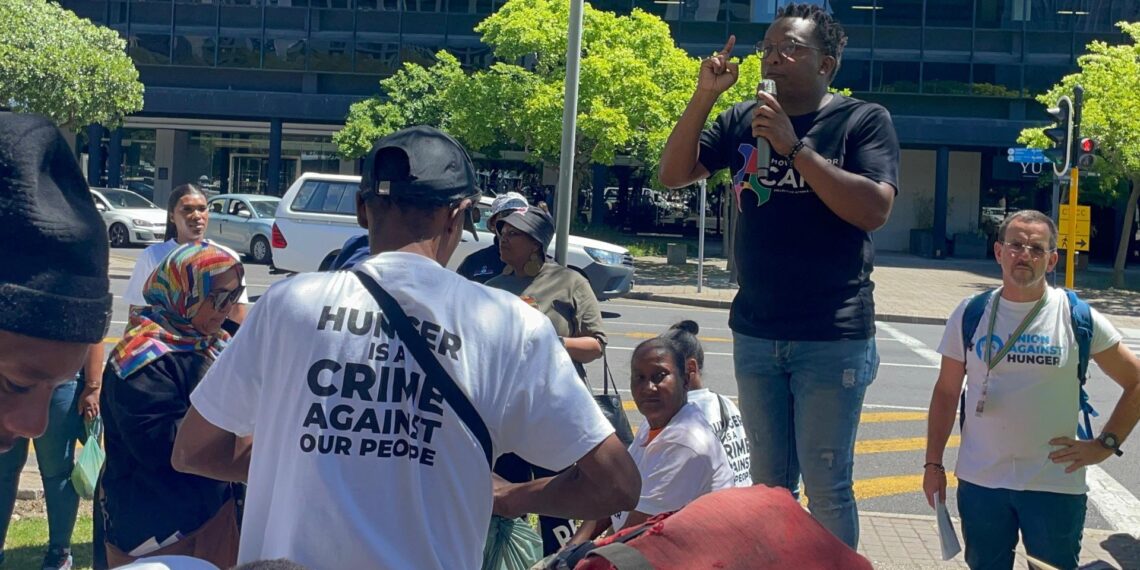Stellenbosch University’s seventh Social Justice Summit, which hosted prominent leaders like President Cyril Ramaphosa and advocate Thuli Madonsela, was marred with protests over food shortages in the country. About 500 activists protested outside the Cape Town Convention Center recently.
Activists delivered a powerful message to government officials, stating that urgent and meaningful action cannot be delayed any longer as millions continue to suffer in poverty and food insecurity.
According to the latest South African Food Security Index, the index has risen to 56.5 in 2024, up from 44.9 in 2023. While this improvement is encouraging, it remains below the 2019 score of 65.8, when hunger levels were notably lower.
Factors impacting food supply and prices
Nicola Newton-King, chair of the council of Stellenbosch University (SU) and member of the council of social justice champions at SU, said that it is an extraordinary thing that 30 years into the country’s democratic transition there are still discussions on food security in a country.
“It is worth considering whether more can be done to support sustainable agricultural production across the spectrum from mega to small-scale farmers, since the failure of a single farmer starts to influence the pricing and the availability of critical foodstuffs,” she said.
Newton-King said there is an urgent need for clear leadership on animal disease control and vaccination, noting that outbreaks directly affect food supply and prices – a crucial point as South Africa currently battles foot-and-mouth disease (FMD).
Related stories
- Agri-transformation: Nurturing new-era farmers for food security
- SA joins global seed talks as trade threatens food security
- SA’s G20 presidency could reshape Africa’s food security
- Steenhuisen urges unity for Africa’s food security goals
Activists demand accountability, reform
While discussions on food security and systemic inequality unfolded inside the Social Justice Summit, the harsh realities of hunger were felt just steps away.
The memorandum which was meant to be handed over to the president called for the elimination of food waste, a national campaign to reduce child malnutrition, and the establishment of a food commission. The memorandum was given to government official.
Nkosikhona Swaartbooi, a member of the Movement For Care, expressed disappointment in his address to the crowd.
“They made a commitment and didn’t fulfil it; via emails they confirmed that they will be sending someone to come and welcome our memorandum. We are saying on what basis is that conference proceeding without them showing empathy to our struggle and coming to meet us and acknowledge our presence here,” Swaartbooi said.
Echoing this sentiment, Mark Heywood, co-founder of the Union Against Hunger, addressed the urgency of the crisis facing millions.
“Today we have millions of people who are hungry in our country. We have come here today from communities where people are dying; young children and babies are dying of hunger. Even though there is a shop across the road, they are dying because they are poor and they cannot afford food.
“And the commitment that we are making is that we are going to build, we are going to march, and we are going to demand until people have access to good, nutritious, affordable food.”
READ MORE: Rugby to regenerative farming: Ruhan scores with record harvest


















